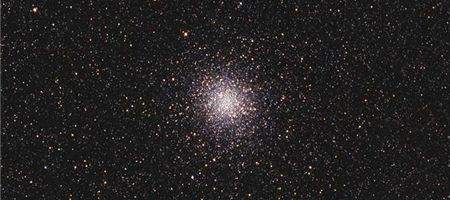Astronomers are scratching their heads after discovering not one, but two black holes at the center of a globular star cluster – something they didn’t think was possible.

The team was using the National Science Foundation’s Karl G Jansky Very Large Array (VLA) in New Mexico to study a globular cluster called Messier 22 (M22), a group of stars more than 10,000 light-years from Earth.
They were hoping to find a rare type of black hole in the cluster’s centre called an intermediate-mass black hole – but instead doscovered two smaller black holes.
“I had actually suggested several years ago that there were probably black holes lurking among the X-ray sources that had already been seen in globular clusters, and that the one way to pick the black holes sucking gas in, apart from other types of faint X-ray sources, would be to look for the radio emission, but I didn’t expect that this particular cluster would be the best place to look,” says Dr Tom Maccarone of the University of Southampton.
“It was still incredibly exciting to see this result, and I’m optimistic that we will find more of these objects in other clusters in the future.”
In globular clusters, it’s believed that many stellar-mass black holes can be produced early on as massive stars rapidly pass through their life cycles.
However, simulations have indicated that these black holes would fall toward the centre of the cluster, after which gravitational forces would expel all but one.
“There is supposed to be only one survivor possible,” says Jay Strader of Michigan State University and the Harvard-Smithsonian Center for Astrophysics. “Finding two black holes, instead of one, in this globular cluster definitely changes the picture.”
The astronomers do have some ideas as to how Messier 22 has managed to hang on to two.
First, the black holes themselves may gradually work to puff up the central parts of the cluster, reducing the density and thus the rate at which they eject each other. Alternatively, the cluster may not be as far along in the process of contracting as previously thought.






